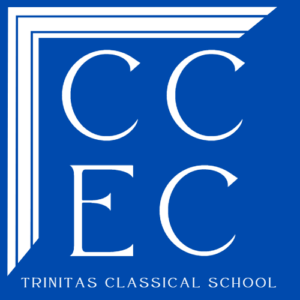 As mentioned in part I, the classical Christian tradition teaches us that friendship with God is humankind’s highest good and that cultivating this friendship requires a life of prayer. How then should we pray? Together and alone. Through the words of others and in our own. We have a God who created and sustains the universe and yet also hears each of our prayers. How blessed are we when in our solitude and without concern for the form of our words we offer our adoration and thanks, make our confessions, plead our requests, and express our emotions. We find our model for this intimate individual and spontaneous form of prayer in scripture. The Psalmists poured out their hearts to God. And we know from his prayer in the Garden of Gethsemane that our Lord poured out his. But private prayers are not the only soil in which friendship with God grows.
As mentioned in part I, the classical Christian tradition teaches us that friendship with God is humankind’s highest good and that cultivating this friendship requires a life of prayer. How then should we pray? Together and alone. Through the words of others and in our own. We have a God who created and sustains the universe and yet also hears each of our prayers. How blessed are we when in our solitude and without concern for the form of our words we offer our adoration and thanks, make our confessions, plead our requests, and express our emotions. We find our model for this intimate individual and spontaneous form of prayer in scripture. The Psalmists poured out their hearts to God. And we know from his prayer in the Garden of Gethsemane that our Lord poured out his. But private prayers are not the only soil in which friendship with God grows.
In his book Prayer, George Buttrick draws attention to the act of praying together, saying that it “should be stressed in a generation which easily neglects and discredits public worship. For a man to argue, ‘I do not go to church: I pray alone,’ is no wiser than if he should say, ‘I have no use for symphonies: I believe only in solo music’” (35).* To this I would add that praying through the words of others might also need to be stressed in a generation which admires the “authentic” and disparages the rote.
Praying the scripted words of someone else can focus and form us in ways an individual and spontaneous prayer may not, especially when prayed alongside others. I remember a seminar that started daily with a corporate reading of “A Student’s Prayer,” a prayer that most often worked to grab my attention and focus my thoughts and prepare me for the work ahead. For a time, I opened my own philosophy classes by reciting with my students words from Psalm 19: “May the words of my mouth and the meditation of my heart be pleasing in your sight, LORD, my Rock and my Redeemer.” Trinitas’s art teacher begins each class with a little catechism for the purpose of orienting herself and her students:
- Who made God? No one
- Who made the world? God
- What was there before God made the world? Nothing
- Who made you? God
- When we make art, who are we imitating? God
While not arising spontaneously from one’s own mind and heart, the words of others can help direct one’s mind and heart not just in the moment but for the long run. They may move from merely something rote to an expression of one’s own thoughts and feelings, to a truly authentic expression of who one is. Think for a moment about so many who growing old, memories desperately failing, still recite the scripture and offer the prayers and sing the hymns of their youth. I remember my paternal grandfather who in his last days was unable to move or to speak. When my husband and I held his hands and recited Psalm 23, his hands stretched and his mouth opened as he uttered sounds in communion with our words, the words of all God’s people.
It was a profoundly shared experience. Praying the prayers of others, with others, connects us more deeply to each other. Have you ever stopped to think about how the words we pray together in the Lord’s Prayer were given by Jesus himself and prayed by his disciples and by Christians ever since that time and around the whole world? It is nothing short of amazing to be able to share that experience and others like it as we pray the prayers of the Church together.
At Trinitas, we build habits of shared prayer, both scripted and spontaneous, into the rhythms of each day. We begin with Morning Prayer as a full school or as individual classes. Students and teachers pray together before snack and lunch and at the close of the day. Prayers are offered through poetry and prose, the Psalms and the Gospels, the Old and the New Testaments. They are read and recited by one voice and many, in turn, in unison, and antiphonally. They are sung. Individual and communal prayer requests and praises are offered. Students, teachers, parents, missionaries, and our school are regularly lifted up to our Lord. Trinitas classrooms, hallways, worship spaces, grounds, and gym, teachers, admin, board, parents, and the name of each child were prayed over by a faithful group during a prayer walk in August. Each staff meeting and each in-service begins in prayer and each board meeting is book-ended with prayer to remind us that our calling to the education of Trinitas children is rooted in our friendship with God. Families are invited to join us. Morning Prayer is always open to parents and siblings, and we welcome you to become part of our online Prayer Team or our Moms in Prayer group.** We encourage you to build and strengthen rhythms of prayer in your daily lives at home too. You can pray along with us using the scripture and prayers of The St. James Daily Devotional Guide, and you can find some favorite prayer resources and practices of our staff shared below to support you in building this best of all possible friendships.
“Do not be anxious about anything, but in every situation, by prayer and petition, with thanksgiving, present your requests to God. And the peace of God, which transcends all understanding, will guard your hearts and your minds in Christ Jesus.” Philippians 4:6-7
Favorites Shared by our Staff
- The Ancient Faith Prayer Book, Papavassiliou
- Beyond Doubt: Faith-Building Devotions on Questions Christians Ask, Plantinga
- Christ in His Saints, Reardon
- A Diary of Private Prayer, Baillie (can be used alone or with others)
- Every Moment Holy: New Liturgies for Daily Life, McKelvey
- Hear Me: A Prayer Book for Orthodox Young Adults, Boyd
- Seeking God’s Face: Praying with the Scriptures Through the Year, Reinders
- St. Paul’s prayers or any scripture can be offered as one’s own prayers, verbatim or paraphrased. Children can learn to do this as well. A Bible or story Bible can be kept by the bedside or at the dinner table to be read aloud by the child(ren) or a parent. Two story books we recommend: Egermeier’s Bible Story Book and The Young Reader’s Bible: 70 Easy-To-Read Bible Stories, Bruno.
Prayer journaling or keeping a simple prayer list are also good practices for individuals and for families, especially for faithfully praying for others.
*Buttrick, George. 1942. Prayer. New York: Abingdon-Cokesbury Press.
**Information for our Prayer Team and Moms in Prayer group can be found at the bottom of our all-school newsletter.
© ALP
